To not dig your soil, the foundation of your garden, the fuel that lets vegetables grow, was once radical. No-dig gardening is a recent innovation, relatively speaking, and is regarded by most of my allotment neighbours as ‘…a bit unusual’. It is still the case at most allotments that the benefits of digging are exclusively linked to incorporating organic matter and loosening the soil to avoid compaction. For YouTube and Instagram users this style of gardening will seem very out-dated. Champions of the no-dig technique, like Charles Dowding, are amassing tens of thousands of viewers, with vlogs demonstrating how adding compost to the top of the soil mimics natural ecosystems, simultaneously supporting soil life which does the job of incorporating organic matter.
No-dig for victory
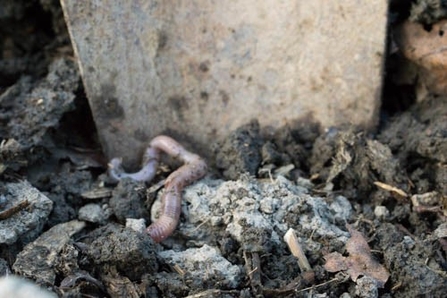
This process, adding kitchen compost or manure, is in opposition to certain traditions, and an obstacle to routine tasks like earthing up potatoes. But if there are benefits to earthing up potatoes, I haven’t yet seen them. Earthing up is still the default where most people are concerned, in my allotment, at least. This is not to say that I’m against earthing up, and I’m in no way experienced enough to completely dismiss the benefits. But knowing how much digging can take it out of me, especially having long term fatigue after radiotherapy, I love and appreciate this accessible method to work nutrients into the soil.
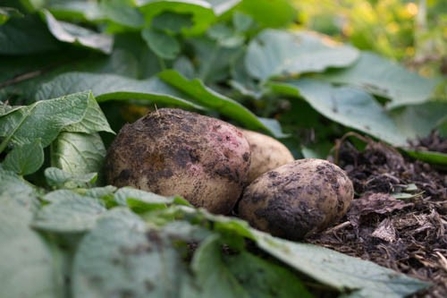
Horticulturalist, Lawrence D Hills said,
“We’re not concerned with proving whether any of our authors whose books are bibles for each separate cult of no-digger are ‘right’ or ‘wrong’. Our purpose is to find a blend of old and new methods that will help us garden with least and lightest work”.
Hills was keen to show us that gardening is for everybody. This is not always immediately obvious, of course. How many fledgling gardeners are put off by the lack of peat-free options, or succumb to ‘reduced peat’ options where proportions are only minutely reduced? I know that I’ve fallen under this bracket, and even granting for my increasing interest in homemade compost, manure, leaf mould, I will not be able to produce the quantities required for an entire season on the plot. The trick is to try your best and enjoy the process.
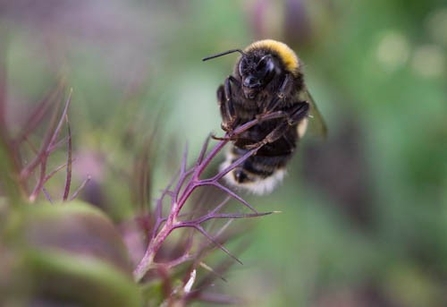
In defence of homemade compost, it’s so satisfying to make, it’s easier to trace ingredients, and it’s fun! Plus, knowing where soil comes from helps avoid pesticide damage, such as the damage caused by aminopyralid. For those of us concerned about the long-term impacts of pesticides and weed killers, and who have committed to using natural fertilisers such as manure, this is a worrying and little-known problem. Aminopyralid damage stunts plants grown in compost affected by persistent chemical ingredients used in commercial herbicides. I was able to identify an affected source by comparing seedlings sown in contaminated compost vs 'safe' compost.
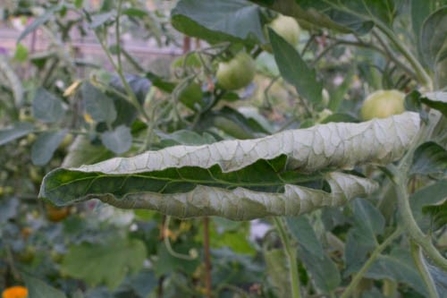
My manure is sourced for free, which is an amazing benefit when commercial compost is in short supply. Putting aside my fantastic and plentiful source of free manure, here there was a potential Aminopyralid source illustrated by some curly, brittle tomato leaves, a problem that can go on to stunt growth, and is especially frustrating when growing from seed. There were no obvious beginnings, and there was no way I could remember what compost I had used when potting on. For these kinds of problems, you need to take a bit of time, and the solution was found by potting up two sacrificial plants in different composts. A store-bought compost ought not to be a source of aminopyralid. But it sometimes is. If these little frustrations were to put off all gardeners there would be none of us left. Still, tomatoes are now in plentiful supply, going strong, and keeping us in delicious pasta sauces.
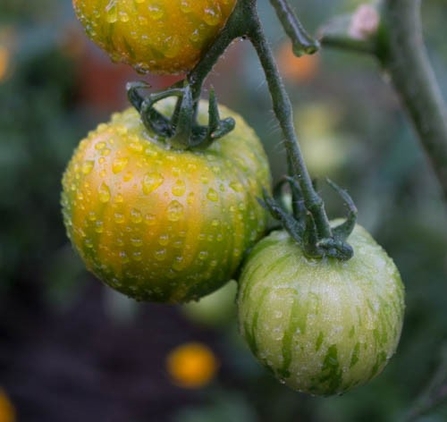
Healthy soil, maintaining it through sourcing as much good quality compost as possible, typically results in sturdier plants and better harvests, and the benefits of no-dig have additional results by not breaking up fungal hyphae and bacterial colonies that help crops process essential nutrients or damaging earthworms. These joint outcomes seem to bolster themselves further by precipitating better carbon retention, helping mitigate climate change and boosting biosecurity.
No-dig, healthy compost, reputable sources, minimal effort. These are the central principles in my allotment. Roughly followed it produces a decent harvest low maintenance enough to allow me to keep gardening without tiring myself out, consider wildlife habitats by avoiding any peat-based products, and support soil health by looking after microbial networks.
Why not give it a go?
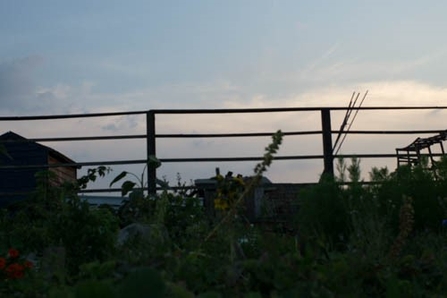
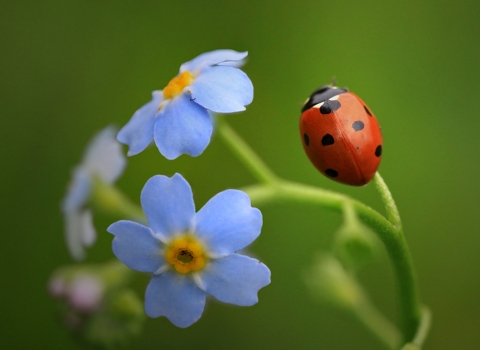
WildNet - Jon Hawkins - Surrey Hills Photography
Action for Insects
Take action for insects by claiming your free guide and start to make a difference today.

